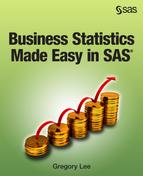Correct Sampling
As discussed briefly in the previous
chapter, if you wish to make inferences about a certain population
of observations, then gathering all the data from the entire population
is obviously best. However you often cannot do this for practical
reasons such as difficulty and cost. For example, you might need to
survey only a sample of your employees to ascertain job satisfaction
and similar constructs, with the task of using these sample-based
results to make inferences to the general population.
Choosing the correct
sample that will do a good job of reflecting the broader population
is important and desirable. You need to know many aspects of research
methodology in order to do sampling really well. The following are
perhaps the most important points:
-
Representivity: You need to ask whether your sample really represents the population, that is, is it the right profile, size, etc. For example, if the population is 40% white and 35% male, it is best if your sample can also reflect this. If your sample is not representative, there are procedures, for example, weighting the results, but there is never a substitute for sampling well in advance to represent the population. In Chapter 1, does Accu-Phi’s pilot services group adequately reflect the national population of potential customers?
-
Sample size: Is your sample big enough to represent the population and do the required statistical analysis (if you are doing statistics)? The following applies:
-
In some forms of analyses (e.g. regression), there are size cut-offs for how small the population can be (for example the central limit theorem suggests that after about 30-40 observations, population normality can be roughly assumed, so that certain forms of statistics are stable if not strong).
-
In statistics, there are often formal sample size calculations you can do in advance to estimate necessary sample sizes needed to do certain statistics.
-
Generally, bigger is better, although there are caveats to this too.
-
For more, once again,
please do consult research methodology books.
Last updated: April 18, 2017
..................Content has been hidden....................
You can't read the all page of ebook, please click here login for view all page.
